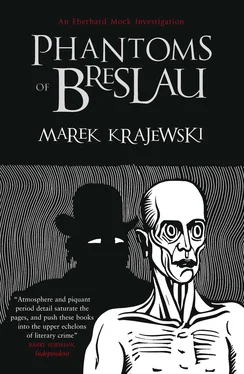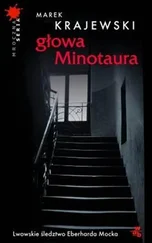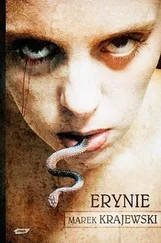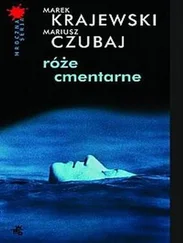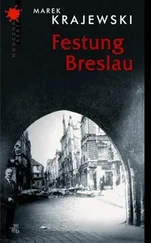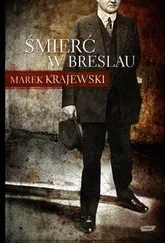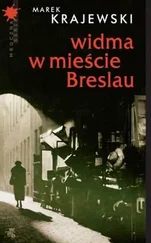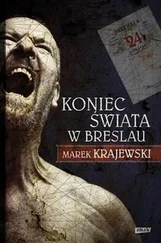Marek Krajewski - Phantoms of Breslau
Здесь есть возможность читать онлайн «Marek Krajewski - Phantoms of Breslau» весь текст электронной книги совершенно бесплатно (целиком полную версию без сокращений). В некоторых случаях можно слушать аудио, скачать через торрент в формате fb2 и присутствует краткое содержание. Жанр: Полицейский детектив, на английском языке. Описание произведения, (предисловие) а так же отзывы посетителей доступны на портале библиотеки ЛибКат.
- Название:Phantoms of Breslau
- Автор:
- Жанр:
- Год:неизвестен
- ISBN:нет данных
- Рейтинг книги:3 / 5. Голосов: 1
-
Избранное:Добавить в избранное
- Отзывы:
-
Ваша оценка:
- 60
- 1
- 2
- 3
- 4
- 5
Phantoms of Breslau: краткое содержание, описание и аннотация
Предлагаем к чтению аннотацию, описание, краткое содержание или предисловие (зависит от того, что написал сам автор книги «Phantoms of Breslau»). Если вы не нашли необходимую информацию о книге — напишите в комментариях, мы постараемся отыскать её.
Phantoms of Breslau — читать онлайн бесплатно полную книгу (весь текст) целиком
Ниже представлен текст книги, разбитый по страницам. Система сохранения места последней прочитанной страницы, позволяет с удобством читать онлайн бесплатно книгу «Phantoms of Breslau», без необходимости каждый раз заново искать на чём Вы остановились. Поставьте закладку, и сможете в любой момент перейти на страницу, на которой закончили чтение.
Интервал:
Закладка:
“What’s this, Herr Mock!” growled Smolorz. “What’s all this about?”
Mock’s subordinate had a raging hangover. His gullet was burning; his stomach was aflame; his ear — enormously swollen and blue-black from the blow dealt by the poker — radiated heat to his cheeks; the haematoma at the top of his head and the bump on his forehead boiled beneath a thin film of skin. Smolorz was angry. At Mock and at the whole world. He grabbed his boss by the collar and lugged him back into the room. He placed the sole of his shoe on Mock’s pale jacket and shoved him under the piano.
“Lie there, fuck it,” he muttered and hurled himself after Ruhtgard who had disappeared into the hall, slamming the door to the games room behind him.
Smolorz was exploding with fury. He opened the door so energetically it almost came off its hinges. He heard the sound of a body falling in the hall, and was there a second later to see that the rug had been moved and the small table with the telephone overturned. The figure of Ruhtgard flashed through the front door. Smolorz ran into the corridor and saw the fleeing man already halfway down the stairs. His brain, overcooked with alcohol, now began to function. Why had the rug in the hall been moved, and why were the table and telephone lying on the floor? “Because Ruhtgard slipped,” Smolorz answered his own question, and instantly formed his plan of action. He caught hold of the stair carpet held in place with metal rods and tugged hard. The rods rang out in the silence of the corridor, rolled down the stairs, and Cornelius Ruhtgard’s feet lost contact with the floor. The doctor tumbled down to the half-landing, protecting his head from hitting the wall. A moment later he was also having to shield it from the blows of a rod. Smolorz was truly furious, and Ruhtgard was feeling his fury.
BRESLAU, MONDAY, SEPTEMBER 29TH, 1919
ONE O’CLOCK IN THE MORNING
Doctor Cornelius Ruhtgard sat in the middle of a large room encircled by a mezzanine floor. A fibrous rope cut into his swollen wrists when he moved his hands, and his eyes were struggling to adjust themselves to the bright electric light beaming from a lamp on the table. A moment earlier a sack had been removed from his head, reeking of something that reminded him of detestable mornings spent in the mortuary at Konigsberg University — formaldehyde, and an even worse odour which he preferred not to identify.
“It’s strange, Ruhtgard,” came Mock’s voice from the darkness, “that you, a doctor, after all, should loathe corpses …”
“I’m a doctor of venereology, Mock, not a pathologist.” Ruhtgard cursed the hour when, lying in the trenches surrounded by gleaming snow and the glimmering of the stars, he had once confided in Mock and told him about the terrible moments he had experienced during his classes in the mortuary: his colleagues had made a show of eating their sausage rolls while he, in spasms, had clasped his stomach and vomited trails of bile into the old sink.
“Take a look around our museum of pathology,” Mock said quietly, “while I read something to you …” He opened out the denial he himself had written. “Let’s see whether handwriting changes under hypnosis.”
Ruhtgard cast his eye at the glass display cases and turned pale. A foetus turned its film-covered eye towards him from a jar of formaldehyde. Next to it was a stretched, rectangular piece of skin, and above a tangle of pubic hair loomed a bold tattoo: “For beautiful women only”; below this, an arrow pointed downwards to indicate what had been reserved for the fair sex.
“Tell me, Ruhtgard” — Mock’s voice was very calm — “where are my father and Erika Kiesewalter? I gather no-one at your hospital has even heard of them …”
“Before I tell you” — Ruhtgard’s eyes wandered to a severed hand which had been arranged in a jar in such a way that students could study its tendons and muscles — “tell me how you found out about me.”
“I’m the one asking the questions here, you swine” Mock’s voice did not change one iota. His stocky form was obscured in the shadow cast by the lamp.
“I have to know, Mock.” Ruhtgard’s eyes paused at a glass shelf on which lay a row of skulls with bullet holes. “I have to know whether I was betrayed by a member of my brotherhood. I’ll give you an address and you can send your men there. But what are we going to do while your brave boys search the cellar where I keep the prisoners? We’ll talk, won’t we, Mock? We’ll carry on our conversation to shorten the wait. And each of us will both answer and ask questions. No-one’s going to say: ‘I’m the one asking the questions here’. It’s going to be a quiet conversation between two old friends, alright Mock? You choose. On one side of the scales my silence and your pitiful copper’s pride shouting ‘I’m the one asking the questions here’, on the other the address and a quiet conversation. Are you a reasonable man, Mock, or are you so full of anger that all you want to do is hit your square head against the wall? It’s your choice, Mock.”
“And why shouldn’t I go to the cellar with my men? I want to see my father and Erika. There’ll always be time to listen to you …”
“Oh dear …” Ruhtgard closed his eyes to the grotesque exhibits. “I’ve forgotten the address. It’ll come back to me when you promise to stay here… What’s it to you, Mock? I can tell you about Konigsberg and many other things besides… You listen to me, I listen to you …”
For a long while Mock did not say anything, then finally he uttered a single word:
“Address.”
“Common sense has prevailed over fury. Loschstrasse 18, cellar number ten.” Ruhtgard felt his throat constrict as he studied a vast aquarium of formaldehyde in which stood a two-metre-tall albino with Negroid features. “So tell me, how did you track me down.”
Mock got up, left the room and shouted: “Loschstrasse 18, cellar number ten. At the double! And take a nurse!” A clatter of shoes rang out on the stairs.
“How did you track me down?” Ruhtgard felt a peculiar satisfaction in manipulating Mock. “Go on, divulge your famous, impeccable logic!”
“Remember when I confided in you about my night terrors?” The crack of a match, and a blaze of light cut through a column of smoke. “You broke the whole thing down to areas of the brain, with one area being responsible for one thing, another for something else. You asked me then whether my father and the dog heard the noises. I never told you anything about a dog. Never mentioned I had one, because I don’t. How could you have known? Because you’d been to my place one night. I asked myself: what could Ruhtgard have been doing at my place? I couldn’t answer this.” Mock lit a cigarette with trembling hands. “When you spent the night with me, you smoked a cigarette before going to sleep. You threw the butt into the grille in the drain. How did you know it was there, in the corner behind the old counter? Because you’d already been there once, I answered. I couldn’t believe you were a murderer, that you’d put Director Wohsedt’s letter down the drain. There was only one thing for me to do: keep an eye on you. Unfortunately, I only thought of this rather late — yesterday, in fact. I got out of the habit of thinking during my three weeks at the seaside. Smolorz has been tailing you since yesterday. He got into your apartment on the quiet and hid on the balcony. I told him not to let you out of his sight. Smolorz is a simple lad and takes everything literally. That’s why he wasn’t standing outside, but he kept an eye on you anyway.”
Mock got up and strolled over to a skeleton in a show-case.
“Now I have a question for you,” he said. “Who did the killing? Who tailed me? Who knew whom I was questioning?”
Читать дальшеИнтервал:
Закладка:
Похожие книги на «Phantoms of Breslau»
Представляем Вашему вниманию похожие книги на «Phantoms of Breslau» списком для выбора. Мы отобрали схожую по названию и смыслу литературу в надежде предоставить читателям больше вариантов отыскать новые, интересные, ещё непрочитанные произведения.
Обсуждение, отзывы о книге «Phantoms of Breslau» и просто собственные мнения читателей. Оставьте ваши комментарии, напишите, что Вы думаете о произведении, его смысле или главных героях. Укажите что конкретно понравилось, а что нет, и почему Вы так считаете.
